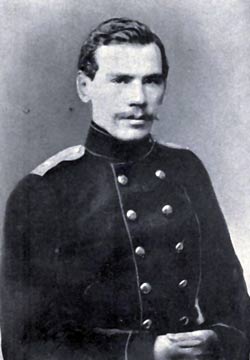Leo Tolstoy Archive
Written: 1908
Source: From RevoltLib.com
Transcription/Markup: Andy Carloff
Online Source: RevoltLib.com; 2021

And to that Jesus told this parable. He said: “Once an master came out early morning to hire workers for his vineyard; and, having made an agreement with workers on one grivna per day, he sent them to his vineyard; then he came out at about breakfast time and met other workers without job and told them: you, too, go work in my vineyard, and I will give you what’s right. They went. He came out again around lunchtime, and in the afternoon, and have done the same. And in the evening he found some more people without job and told them: ‘Why are you standing here without work all day?’ They said: ‘No one has hired us.’ And he said: ‘You, too, go to my vineyard, and I’ll pay you what’s right.’ When time came to pay, the owner says to his manager of the vineyard: call the workers and give them equal pay, starting with the most recent and up to the first. And the ones that came in the evening, have received by grivna. But those who came first, thought they would receive more, but they, too, received by one grivna. And these, the first ones, began to grumble at the master of the vineyard and said: ‘Those have worked one hour, and we spent the whole day from the morning, and you made them equal with us.’ But the master said to them: ‘You shouldn’t complain. Haven't we made an agreement on one grivna? Then take what you earned, and go. And if I want to give the same to the last ones as to the first, then am I not in my power to do what I want? You are offended because I am kind, and you are envious of your brothers. This is not good.’ The same is with people: sooner or later a person will perform what God wants from him. All get the same, the last and the first. (Matthew 20: 1-16)
Questions:
1) How did the master hire workers?
2) How did he pay them?
3) What did the workers say?
4) What did the master say?
5) What does this parable mean?